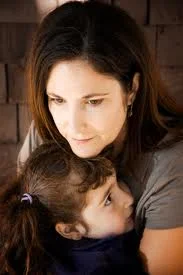Remember the last time you walked away from an interaction with someone where you didn’t respond with what you were really thinking? The one where you had 27 brilliant rebuttals or hard core responses you wish you said, but clammed up out of fear of how your words would be received and what repercussions there might be for speaking your truth. Of course you do, we’ve all been there.
And then we tell our kids to “Use Your Words” when they hit or are verbally aggressive at times and overreact because they don’t know how to communicate their emotions in calm, rational ways that get their point across respectfully. Its not a double standard. Oh wait, yes it is. (I can not apologize for the sarcasm, its how I speak my truth)
Yet, we want our children to speak for themselves and learn the value of self advocacy. In my professional view, its one of those life skills that not only helps you in ANY career you choose, but also in any relationship or friendship or interaction with another human being…and occasionally pets. (I am 99% sure they understand everything we say). But I am not kidding, its that important.
Learning to speak your truth and use your voice could not be any more valuable. Shoving down your emotions starts with a disagreement with your parent or your friend or your sibling or your teacher or the kid bullying you at school and ends with stifled interaction and communication with your boss or your colleague or your spouse and a self esteem that feels it can not get out of its own way. It becomes a patterned behavior and response when we fear that if we speak our truth we will not be supported or worse off, rejected. And most of the time we play out the scenarios in our head and fear the worst without ever having lived it. We reject ourselves before we are rejected and silence ourselves without ever hearing the sound of our voice.
So how can we stop that pattern with our children?
1- Help them to identify what they want as an end result. How do they want to feel at the end of the conversation? What is the intent? Its important to know what they want to feel so they will be able to tell when they have met their goal and end the conversation and embrace the success.
2-Give them the words to use. Do a mock conversation with whomever they feel they need to speak to. Help them play it out to make the unknown a known and they can feel prepared. All those “I wish I said this” can be played out in advance to give them a better shot at saying them.
3-Reframe any negativity. If the conversation feels remotely confrontational (and most people avoid confrontation), help them see it as a positive more so than a negative. For example, if they have to speak to someone who they feel is treating them unfairly, explain to them that by speaking up they are teaching that person how their actions and words affect other people, something they may not know, and in turn will help them rethink how they speak to other people, thus protecting future “victims.” Annnnd they will feel awesome once they say what’s on their mind.
4-Help them see any fear around it as simply a thought, not a reality. There is no real way to know how a conversation/interaction is going to go without assuming….and we all know what assuming does.
But more typically, the anticipation is far, far worse than the actual event. Help them play out the worst case scenario so they can see that nothing is truly too life altering if it doesn’t go the way they’d like.
5- Tell them stories of situations in your own life that they can relate to so they see that they are not alone and that life goes on. Its so helpful for all of us to speak to someone who we feel gets us and our fears when we are having them and when its the strong parent you look up to, even more so. Sometimes the most comfort comes when we hear survivor stories of those who’ve been in similar shoes.
The hardest part for some parents will be to not do it for their children. When our protective instincts come out, we pump up our chests and want to fix it for them with our experience, but allowing them to do it on their own actually is a far more empowering opportunity for growth. And isn’t allowing them to grow the best way to advocate for them? I vote yes.
And if you are wondering if they are old enough to handle it on their own? If they can speak up to you and use their voice, then they are old enough to handle it on their own.
Wanna hear the super bonus of all? The more you teach them and encourage them to use their voice, the more confident and comfortable you feel doing the same in your own life. Two lessons in one. What’s better than that?










